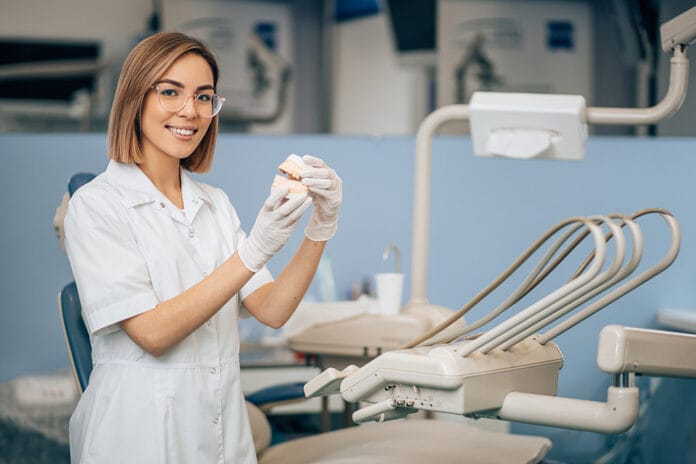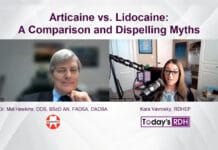When I tell my dental hygienist friends that I work in a community health clinic, I get a variety of responses. Some ask if I’m doing non-surgical periodontal therapy/SRP all day. Many ask how long I think I can keep it up. Others ask if I’ve looked around for a private practice job. However, the truth is I love my job and wouldn’t trade it for any other.
While it is true that community health has its own set of challenges, such as budget and supply restrictions, ever-changing patient populations, and oversight of outside agencies, the rewards are great. Not only can we succeed in community health, but with the right mindset, we can actually find great joy. There is joy in serving dental patients, being with our coworkers, and in work itself.
Winston Churchill, the two-time prime minister of Britain, once said, “We make a living by what we get, but we make a life by what we give.”
Patients
Mahatma Gandhi, whose political activism redefined community interactions in India for decades, said, “The best way to find yourself is to lose yourself in the service of others.”
Community health clinics provide an unequaled opportunity to interact with a wide variety of patients. We see patients who are recent immigrants, have special needs, or are retired. We serve people from farmworkers to medical providers. Such diversity provides unending variety to our day as providers. Imagine the different challenges in treatment and different fun conversations we have in a day!
Many patients we serve have very little dental knowledge or experience. Some know nothing about home care or, indeed, even how to sit in a dental chair. It is so satisfying to teach someone new skills that actually will have a huge difference in their quality of life. Patients are so amazed at how different they look and feel after non-surgical periodontal therapy. They often enjoy relating how their routine at home has changed for the better.
Not long ago, I helped a teenage girl who recently immigrated and had never been to the dentist. She presented with severe staining. She was extremely quiet, and she barely even answered my questions. After a thorough cleaning, I got out the patient mirror and showed her beautiful white teeth. She smiled so big, and her eyes filled with tears. “They look so pretty” was all she could say. Now when she returns for recall, she seems like a different girl, full of confidence and smiles.
We literally changed her life.
Coworkers
Author Margaret Carty said, “The nicest thing about teamwork is that you always have others on your side.”
Of course, as in every dental setting, community health clinics experience times of stress. The changes associated with the COVID-19 pandemic have been an unprecedented challenge. With almost daily changes for a while, all health care providers were stretched to the limit. It seemed like that, for a while, a new policy or procedure would be in place for us to adjust to. It felt like such a roller coaster. This is where the team becomes our comfort.
When going through stressful situations, no one has a shared understanding like the work-family. The team all goes through the same challenges, and as a result, develops its own coping mechanisms. Community clinics often have a larger staff than in private practice, so there is always plenty of support available. When a challenging situation arises, the team pulls together and helps out. Throughout the day, the team blows off steam with a sense of humor.
It is not unusual for laughter to be emanating from the lab when walking a patient to the treatment room, and that creates a happy atmosphere for patients and employees alike. The ability to laugh is a skill that we depend on in community clinics. Weird things happen, unexpected situations pop up continually, and a flexible attitude that finds humor in adversity carries us through.
Challenging Work
The great actress Katharine Hepburn said, “If you obey all the rules, you miss all the fun.”
Remember the crazy pathology pictures we saw in textbooks in school? It is not unusual to come across rare conditions in community health because the population we work with has often been without care for many years. We get to research, use differential diagnosis, and interact with specialists.
Because of the limited resources in a clinic setting, we may not have every new material or gadget available to us. At the same time, we often see some of the most challenging cases, both in periodontal care and in restorative procedures.
These cases represent our chance to get creative! We may find new uses for instruments beyond what they were intended for. Ideal care is often financially out of reach for patients, so it is our job to be creative and find the best path to health that will work for them. It is essential to consider the whole person: culturally, economically, their values, and their needs.
Many community health settings house both dental and medical care. This provides a golden opportunity for cooperation between modalities. While a private practice dental provider might suggest to a patient that they visit their medical provider about blood pressure, a facial lesion, or a swollen lymph node, we have the ability to directly walk them over to a medical provider or even have the provider come to the dental operatory.
We can actively communicate with primary care providers about systemic conditions and oral manifestations such as diabetic control and medication side effects.
Working as a hygienist in a community health setting certainly presents challenges, but the rewards can be astounding. We expand our skills as providers in an exciting environment, and at the same time, create a profound change in the health and quality of life for patients and the community that we are a part of.
Before you leave, check out the Today’s RDH self-study CE courses. All courses are peer-reviewed and non-sponsored to focus solely on pure education. Click here now.
Listen to the Today’s RDH Dental Hygiene Podcast Below:












